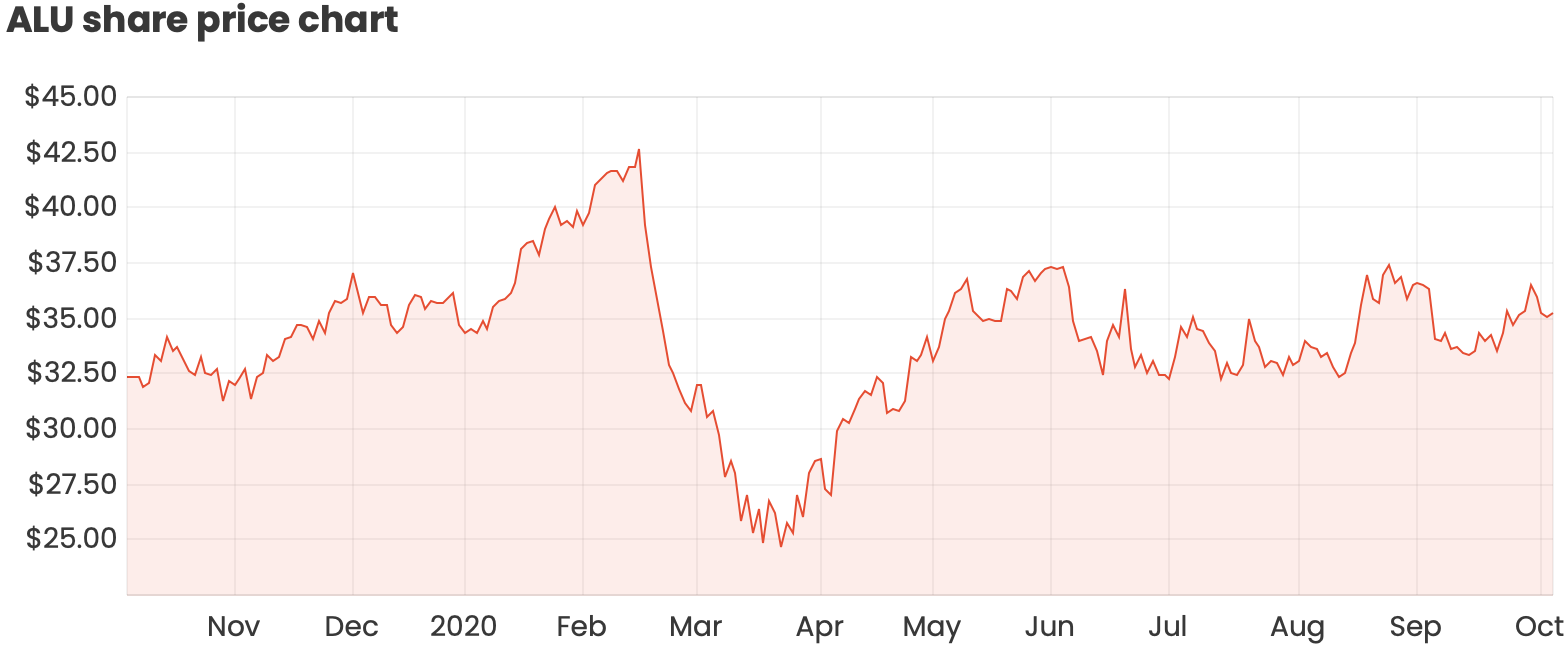Altium Limited (ASX: ALU) shares have stagnated significantly for the last year and a half. If you bought shares in Altium a year ago, you might have been left disappointed.

In saying this, I don’t try and anchor my investment decision based on past performance too much. I’d prefer to try and decide how attractive this investment is today, based on the growth opportunities in the future.
Here’s my analysis of Altium and why I’m keen to add this stock to my portfolio.
Why the Altium share price has gone sideways
The COVID-19 pandemic has had a significant impact on the latest results released by the company. Altium has depended on a physical sales team to drive the majority of new sales across the US and the UK. As Altium targets small and medium-sized enterprises (SMEs), the looming question remains for the short to medium term is if its customers have the necessary cash flow to still use Altium’s services during periods of decreased earnings.
I am happy to accept for the above reason it could be likely that Altium will struggle to grow its earnings for the next year at least. I don’t think it will shoot the lights out in the short-term, but I am happy to look past this and focus more on how management plans to grow the business over the next five years.
One more thing I might add explains why Altium showed a 41% drop in net income from US$52.9 million to US$30.9 million in FY20. There were changes in some accounting rules which resulted in a higher tax expense being incurred. This will be offset by a lower effective tax rate in future years. Don’t worry about the technical details too much, the point is it’s easy for the market to overlook something that doesn’t actually change anything fundamentally.
How management plans on growing the business
Altium 365
was launched in May and provides a cloud-based platform for the design of electronics hardware. The idea is that multiple users can collaboratively work on a single project all from remote locations. Altium 365 already has over 5,000 active users and plans to tap into a huge addressable market that will help drive sales growth.
To help improve its earnings quality, Altium is currently changing the way it prices its products. Around 40% of Altium’s revenues are non-recurring and are in the form of perpetual licences. As I mentioned earlier, salespeople are needed to drive these non-recurring sales, which doesn’t scale as well as other methods.
Now, Altium is transitioning to a SaaS-based recurring revenue model under the 365 platform. Not only will this make it more affordable for small businesses, it means it doesn’t require additional costs in the form of salespeople to continually make a sale as every year goes by. The scalability of this model is very appealing and should allow gross margins to expand as Altium grows its 365 platform.
Altium’s valuation
I’m going to use a price-to-sales (P/S) multiple to calculate a rough target price, assuming Altium can achieve its revenue target of US$500 million (AUD $696 million) by 2025-2026.
Altium currently trades at a P/S of 17, meaning its market capitalisation is 17x as large as its revenues for FY2020. I’m going to assume Altium can maintain a P/S of 17.
With revenues of AUD$696 million in FY25, this implies a market capitalisation of $11.8 billion. When we divide $11.8 billion by 131 million shares outstanding, this implies a target price of around $90 per share.
Now, I will introduce a margin of safety by assuming Altium misses its revenue goal and actually achieves a market capitalisation of $10 billion and adds 20 million new shares outstanding from a hypothetical capital raise. The new equation will be $10 billion divided into 151 million shares outstanding, resulting in a share price of $66 per share.
The point of the margin of safety is to use less than ideal growth assumptions and still end up with a target price that provides a sufficient return.
Based off this valuation, IF management can follow through with its guidance, and assuming the same current P/S multiple, it could be reasonable to assume that Altium could achieve a share price of around $78 (the average of $90 and $66) by around 2025-2026.
Final thoughts
Take this valuation with a grain of salt. This will have to play out in the long-term and puts a lot of faith in the management team to deliver on this revenue goal.
Valuation aside, I think Altium has some exciting new growth prospects in an industry with increasing uses of electronic applications. It’s a buy for me, but don’t expect it to shoot the lights out in the short-term.










